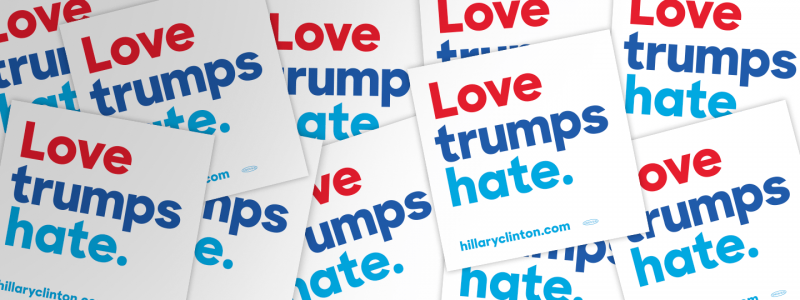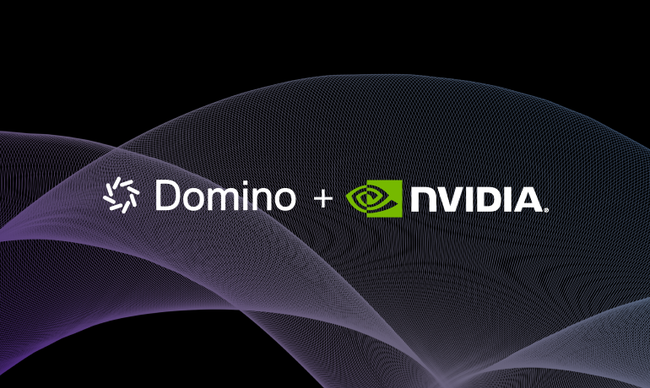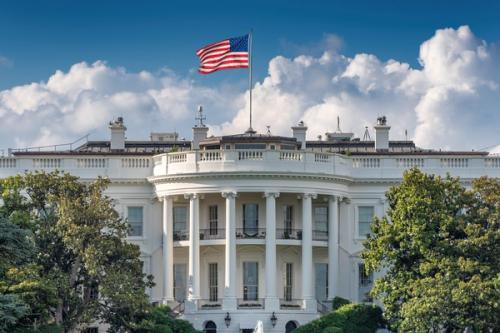Data Science: Just One More Way That Donald Trump is Different
Domino Data Lab2016-05-23 | 4 min read

If you’re a data scientist interested in working in politics, don’t bother applying to the Trump campaign — but Hillary has a job for you.
In a recent AP interview, Donald Trump discounted the value of data as a campaign strategy tool. His plan is to win based on the strength of his personality. The presumptive Republican nominee pointed to Obama’s personality, saying “Obama got the votes much more so than his data processing machine, and I think the same is true with me.”
As with many things Trump, it’s an unconventional opinion. Most political professionals view Obama’s 2008 campaign as groundbreaking in its use of data, especially to get out the vote. Obama’s focus on the right battlegrounds during the primaries got him delegates that Hillary Clinton hadn’t even realized were in play.
For any major political campaign, data science is the brain of the operation. The questions that data scientists can answer cover every single aspect of the campaign: where to fundraise, which states to fight for, which message for the audience, who are the swing voters. On these, data trumps opinion every time.
Strategic questions aside, a big part of a political campaign is just straight up marketing. Candidates spend tens of millions of dollars on advertising. Political ads run alongside ads for cars, diapers and beer. Data science is the way companies target advertising at the right audience. It’s the difference between carpet bombing and smart bombs: far more impact for far less money.
For Trump, who has raised less than half of what Hillary Clinton has raised, it would make sense to try to stretch his advertising dollar. Instead, to date, he’s benefited tremendously from free press. His campaign spent less than ⅓ of what Ted Cruz did, and has spent only about 20% of what the Clinton campaign has.
But as the campaign shifts to the general election, the free press advantage is likely to shrink. Also, his ability to control the press has come in large part because of his willingness to make unconventional statements. An inability to run a data driven ad campaign would become a tremendous liability if he needed to deliver a focused message.
The Clinton Campaign, on the other hand, is looking for even more data scientists to help them figure out how to best allocate resources to get the best outcomes. Their analysts work on fundraising, advertising, geographic analysis and more. There are currently more than a dozen open jobs on the analytics team, from beginner to experienced researcher. Some of the interesting jobs include:
- Battleground States Analyst
- State Director, Data and Analytics
- (or you have less experience, you can be a Deputy Director
- Data Science Lead
- Data Scientist
Data scientists who want to help Donald Trump “make America great again” may find a wall between them and their candidate. The Clinton Campaign, on the other hand, is ready to use data to make decisions.
UPDATE: In an article on fivethirtyeight.com this morning, Joshua Darr explores the impact Trump’s decision to limit the role of data in his campaign will have on the Republican Party. Not in terms of influencing the outcome of the election, but rather that Presidential elections present a rare opportunity to both collect data at far higher volumes than other elections, and to cultivate the next generation of talent capable of leveraging that data.
Domino powers model-driven businesses with its leading Enterprise MLOps platform that accelerates the development and deployment of data science work while increasing collaboration and governance. More than 20 percent of the Fortune 100 count on Domino to help scale data science, turning it into a competitive advantage. Founded in 2013, Domino is backed by Sequoia Capital and other leading investors.



